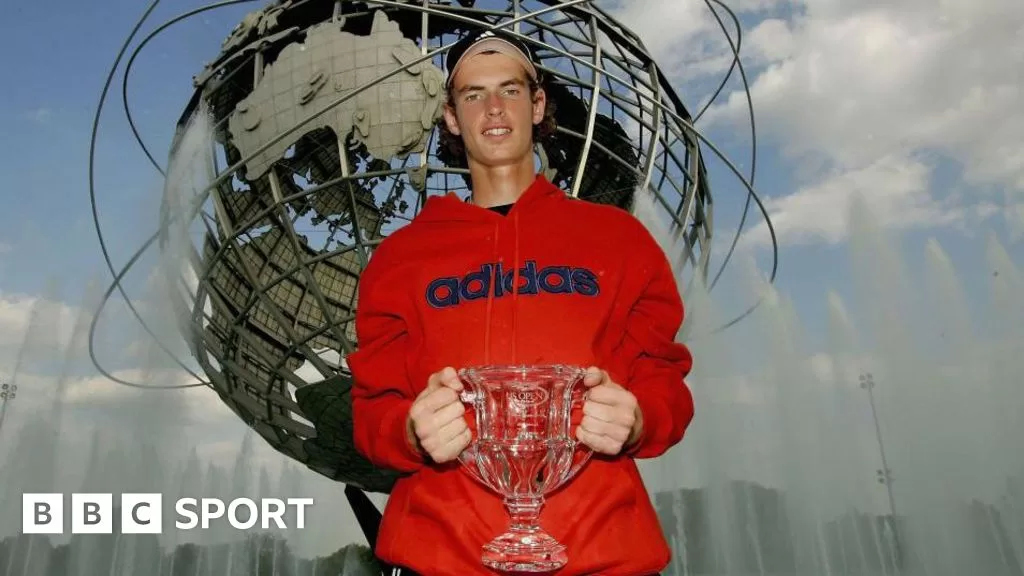Murray’s dry humour was already established during his junior days.
“Who’s the greatest player in the history of Scotland?” a reporter probed.
“Me?” he replied.
Murray added: “My mum was an OK player, but we’ve got one senior guy who’s, like, 220 in the world. Apart from him, there’s not really anybody that’s been very good.”
That “senior guy” was Alan Mackin, whose win-loss tour level record reached 1-15. Murray retired with a 739-262 tally.
First up for Murray in the 2004 junior title run was 15-year-old Argentine Juan Martin del Potro, who was walloped 6-0 6-1.
Twelve years later, Murray beat Del Potro again in the Rio Olympics final – by which point both men had won a US Open men’s title.
And if there is familiarity about the name of Stakhovsky, the man who stood in Murray’s way in the final, there is good reason for that.
The Ukrainian achieved a jaw-dropping 2013 victory against Roger Federer at Wimbledon, boasting he “kicked the butt” of the Swiss. With Federer nursing a sore backside, Murray swooped for that title, too.
Murray’s retirement came just weeks ago. His body had been sending code-red messages for years; the mind eventually took heed.
His game was born in Dunblane and nurtured in Spain, but New York was where observers began measuring him up against Britain’s leading man Henman.
“I’ve been compared to him a lot, which is great,” Murray said in 2004. “I think I can do it. But just now I’m nowhere near as good as Tim.”
Henman reached six Slam semi-finals – the last coincidentally came at the 2004 US Open – but a final remained elusive.
After beating Stakhovsky, Murray acknowledged the burden coming his way.
“This tournament’s a big deal for me, but in a few years everyone’s going to have forgotten about it and they’re going to be looking for me to win in the senior Grand Slams,” he said. “I believe that I can go right to the top.”
